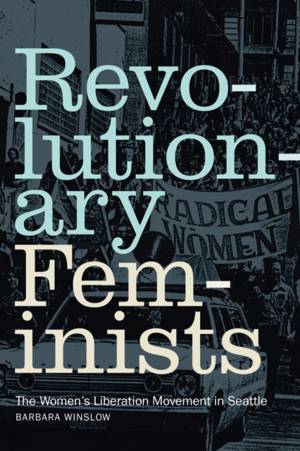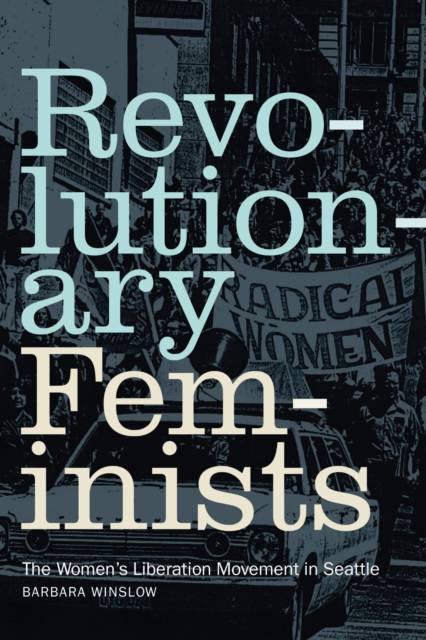
Je cadeautjes zeker op tijd in huis hebben voor de feestdagen? Kom langs in onze winkels en vind het perfecte geschenk!
- Afhalen na 1 uur in een winkel met voorraad
- Gratis thuislevering in België vanaf € 30
- Ruim aanbod met 7 miljoen producten
Je cadeautjes zeker op tijd in huis hebben voor de feestdagen? Kom langs in onze winkels en vind het perfecte geschenk!
- Afhalen na 1 uur in een winkel met voorraad
- Gratis thuislevering in België vanaf € 30
- Ruim aanbod met 7 miljoen producten
Zoeken
Revolutionary Feminists
The Women's Liberation Movement in Seattle
Barbara Winslow
Paperback | Engels
€ 37,45
+ 74 punten
Omschrijving
Revolutionary Feminists tells the story of the radical women's liberation movement in Seattle in the 1960s and 1970s from the perspective of a founding member, Barbara Winslow. Drawing on her collection of letters, pamphlets, and photographs as well as newspaper accounts, autobiographies, and interviews, Winslow emphasizes the vital role that Black women played in the women's liberation movement to create meaningful intersectional coalitions in an overwhelmingly White city. Winslow brings the voices and visions of those she calls the movement's "ecstatic utopians" to life. She charts their short-term successes and lasting achievements, from organizing women at work and campaigning for subsidized childcare to creating women-centered rape crisis centers, health clinics, and self-defense programs. The Seattle movement was essential to winning the first popular vote in the United States to liberalize abortion laws. Despite these achievements, Winslow critiques the failure of the movement's White members to listen to Black, Latina, Indigenous, and Asian American and Pacific Islander feminist activists. Reflecting on the Seattle movement's accomplishments and shortcomings, Winslow offers a model for contemporary feminist activism.
Specificaties
Betrokkenen
- Auteur(s):
- Uitgeverij:
Inhoud
- Aantal bladzijden:
- 248
- Taal:
- Engels
Eigenschappen
- Productcode (EAN):
- 9781478019916
- Verschijningsdatum:
- 8/08/2023
- Uitvoering:
- Paperback
- Formaat:
- Trade paperback (VS)
- Afmetingen:
- 152 mm x 229 mm
- Gewicht:
- 362 g

Alleen bij Standaard Boekhandel
+ 74 punten op je klantenkaart van Standaard Boekhandel
Beoordelingen
We publiceren alleen reviews die voldoen aan de voorwaarden voor reviews. Bekijk onze voorwaarden voor reviews.









